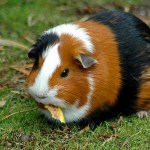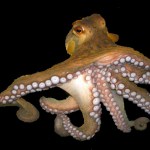spatial learning
Zen recently wrote mentioned this study on his blog, so I thought it was time to dredge it out of the archives. Also, I've just returned from APS (see my daily recaps here here and here), and I am TIRED.
Domestic animals and their wild counterparts can be different in big ways; there can be differences in morphology (physical characteristics), physiology, and behavior. These changes may depend on spontaneous adaptations to captivity or to artificial selection pressures arising from the motivation for domesticating the animal in the first place.
One change that is often observed as a result of…
Say you're visiting Los Angeles and you have a sudden craving for Chinese food. Since you are only visiting, you might not be aware that nothing is open past, like, 10pm (not even coffee houses), but you get in your rental car and go driving around in search of your Chinese feast anyway. You try hitting up Panda Express, but no such luck. Of course they're closed. You try the neighborhood Chinese restaurant: closed as well. You get back in the car, and think to yourself "maybe the OTHER Panda Express will be open", but alas, it is not. You are ready to return to the hotel and just go to sleep…
It's amazing how much you can learn about an animal's mind by a simply watching it.
Video 1: Gratuitous video of octopuses never hurt anyone. Maybe this will sate the Pharyngulites.
In the late 1980s, a researcher named Jennifer A. Mather wondered about octopuses' use of spatial memory. This researcher and some volunteers did some skin-diving near Bermuda and observed octopuses going out in search of food. They noticed that sometimes after catching a tasty bit of chow, the octopuses ate out, but sometimes they'd take their snack to go and eat at home. And not only that, but it turned out…

